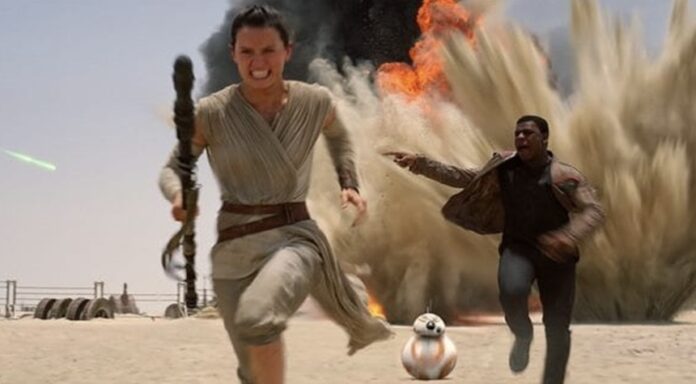There’s a fatigue that moviegoers, and even show-watchers, are feeling when it comes to strong female characters.
In recent years, it seems that you can’t go to a movie or a TV show without seeing a female lead character who is smarter, more talented, or has some other advantage over everyone else. This includes men. They are two-dimensional characters that can be as boring as watching paint drying. These characters are full of groan-inducing quips and they’re supposed to appear stoic, but instead come across as emotionless and lacking in personality.
Hollywood is unable to stop creating these characters, even though films featuring these strong female protagonists have a history of failure. It’s even worse that showrunners and authors will take the criticism seriously and claim that people dislike these characters because of something absurd like sexism.
It’s not sexism. It’s not because the strong female character is a bad trope.
They are just bad at what they do.
Many people have fallen in love over the years with strong female characters that appear in films, comics, video games, and novels. You probably can think of a few right away.
Recently, I wrote an article about a strong woman protagonist named Mizu from the Netflix series “Blue Eye Samurai.” It was so good that I wrote an article about why Mizu is such a compelling character despite being a strong female lead.
Mizu was the protagonist, a strong woman. Mizu may look like a one-man army at times, but she’s not invincible. She doesn’t try to outsmart men twice her height with her strength but rather uses her agility and sword fighting skills to her advantage. Mizu has taken her share of losses and blows, but when she is faced with a huge opponent, Mizu becomes a glass cannon. She does not always win and she sometimes has to be saved.
What I like most about her is that, despite the stoicism that she displays, the show makes clear that beneath the surface is a woman who is very hurt and damaged. Mizu’s emotional pain drives her revenge quest. She is not a smirking woman without flaws. She is not perfect, but she is far more complex than one would think in today’s world.
Mizu is human, has believable motives, and earns her skills. She’s a strong woman, but modern writers struggle to portray this.
The writers of Blue Eye Samurai didn’t create Mizu to be a strong woman protagonist just so they could write about one. They created a story that had a compelling protagonist.
Take any of the Disney female protagonists from the last five years. They could be Marvel, Pixar, or Star Wars characters. Likely, you can’t think of a single character to name, and this is because they are all unrelatable even for women.
The characters begin their journeys perfectly, and they are still perfect at the end of the journey, if not even more so than before. These strong female protagonists only have to overcome their self-doubt. There is no true hero’s story. They’re boring. They are boring.
Sharmeen Obaid Chinoy is the new director of Star Wars.
According to Bounding into Comics, Obaid-Chinoy said: “I am very excited about the project. I think that what we are about to create is something special.” “And now we are in 2024, I think it is about time we had a female come forward to help shape the story of a galaxy far far away.”
This is a strange statement, considering that Star Wars has a lot of female protagonists, including Rey and Ashoka Tano. Bo Katan, who took on The Mandalorian, was the main character. This shouldn’t surprise anyone. Obaid-Chinoy admits that she is an activist and not a filmmaker. She creates everything for activism.
In the following interview, she says: “Every piece of art that I’ve ever created contains a bit of activism.”
New Star Wars director Sharmeen Obaid-Chinoy admits she’s an activist not a trained filmmaker.
“My body of work… has been guided by my activism and every single piece of work I’ve made has a piece of activism in them.”pic.twitter.com/RB73i7wJnD
— MRCTV (@mrctv) January 5, 2024
It doesn’t matter if I have a time machine or a crystal ball to tell me that the film she is creating will flop, and flop badly. Obaid-Chinoy’s goal is not to create a strong female character but to spread feminist propaganda. The message, like many female protagonists, will be the first thing that comes before the story. Only those who are ideologically radical will find it enjoyable if they even show up.
She is not writing a novel. She doesn’t write characters. She’s writing an ideological delivery system.
She is just spreading propaganda.
They won’t be liked. Her characters will be forgotten and boring. She and others will accuse the audience of hatred for women if they don’t impress.
By now, we’ve seen everything a million times.
If I were a Hollywood screenwriter, I would take a break from strong female characters and bring back strong male protagonists. If a writer must make a strong female protagonist, then the focus should not be on her stoicism or skills, but rather, it should be on how she is as a human being. The focus should be on making her a human being first.
Maybe if they did that, the audience wouldn’t be as willing to reject them and their films.










